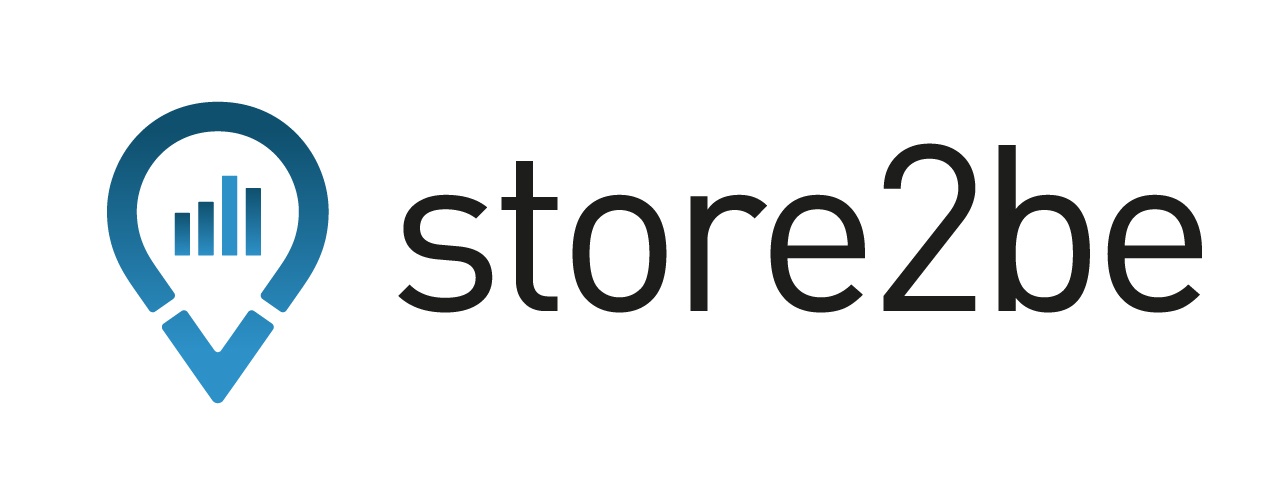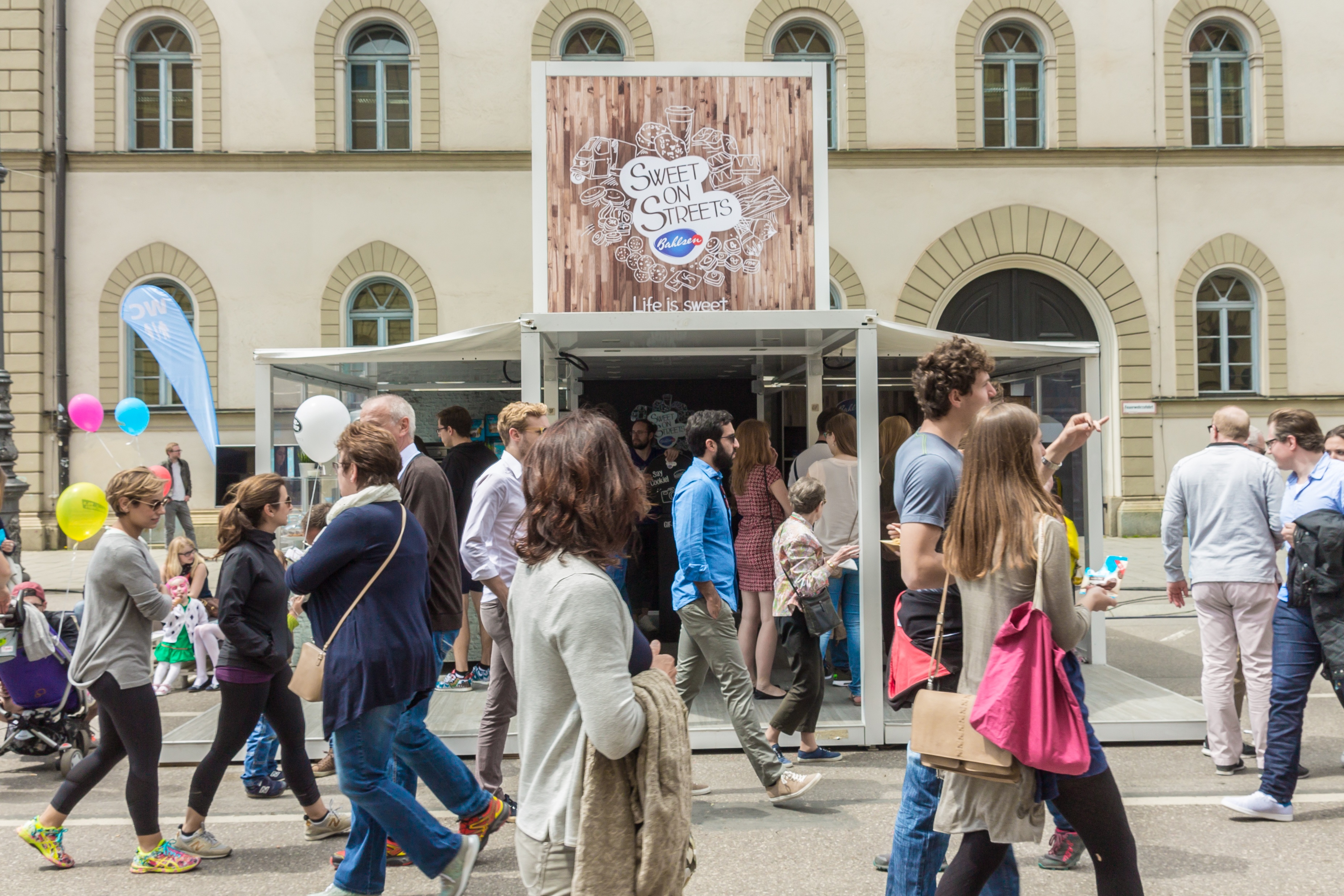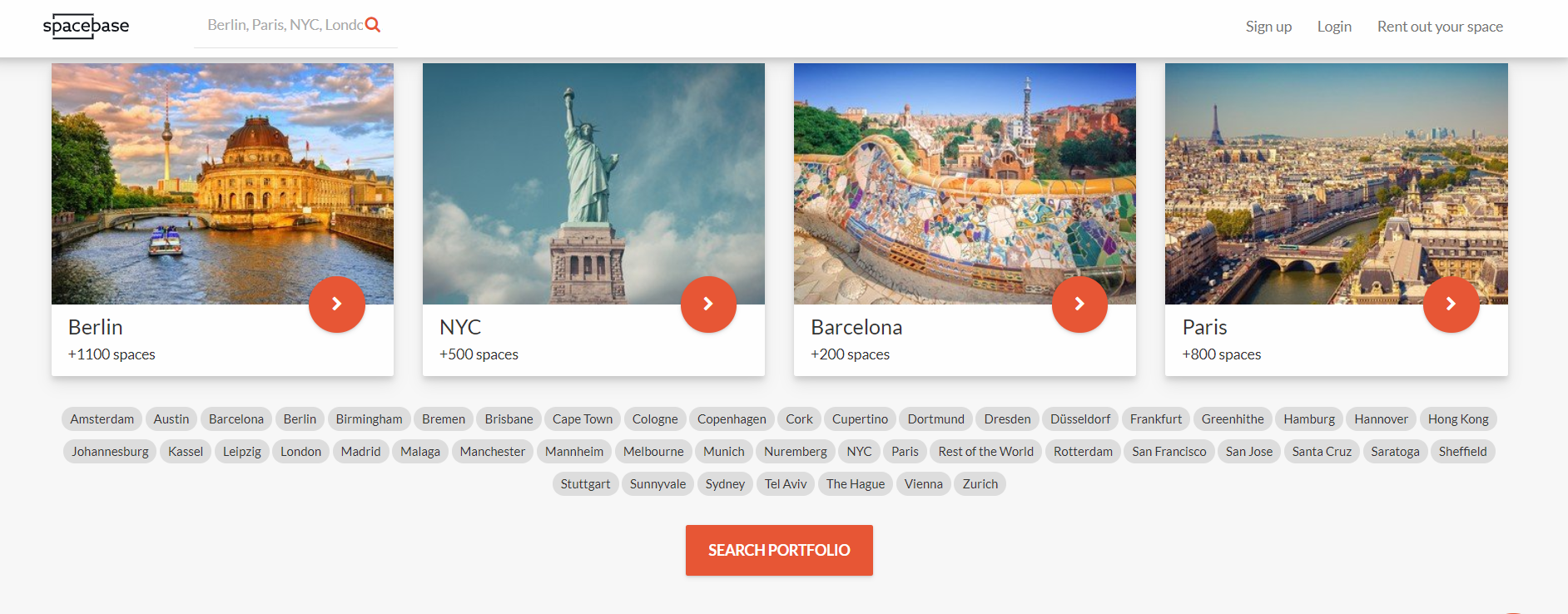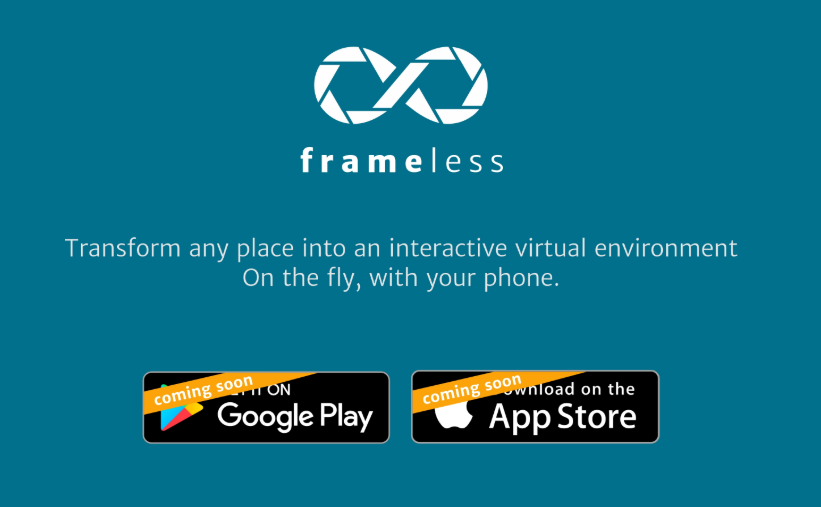
3 of the Most Useful German Start Ups Event Organisers Should Know About
I recently had the fortune of winning a Women in Tech pass to Bits and Pretzels, a conference for founders held annually in Munich, Germany.
One of the highlights of the conference-come-festival was the inclusion of a stage for start-ups to pitch their products and services against each other in a bid to win the accolade of being the Best New Business there.
Participants presented to a panel of judges with distinguished legacies when it comes to investing in successful and creative ideas, as well as an audience of attendees.
The thing is, none of the contestants I’ll be featuring here won because that’s not the point, as many of those who competed will probably tell you. Exposure and refining their business pitches seemed to be the main fare of the day.
What matters for me is what matters for the people who read this blog, so I’ve chosen to showcase three of the most interesting German start-ups event managers should know about specifically that I learned about at the conference.
The three types of technology that promised to be most helpful were:
Here are the details:
1) Frameless
Frameless didn’t win the overall prize, but did progress to the finals of the start-up competition on the back of their actually-useful XR application for event organisers, and anyone who wants to view a space without the need to physically be there.
Though their official launch isn’t due until Q1 2019, Frameless has drawn the attention of some of the biggest players in the Austrian market. (Making them not technically German, yes, but they did present in Germany.)
Their product can be used to easily create a 3D virtual environment out of any space. Specifically, the Frameless app allows people to capture spaces using a smatrphone to create immersive virtual environments.
I got a chance to ask their co-founder, Hossam El-Sifary a few questions, and here’s what he had to say:
When asked how Frameless has been playing in the event and conference space as yet, he said:
“You’re absolutely correct, events is one use case where our application can make it easy for event organizers to capture venues and create virtual walk-throughs to show to exhibitors before booking and then to event attendees as well. We’ve been in touch with a client in LA who is like AirBnB but for smaller events and video shoots, but not large conferences yet.”
Though the technology itself already seemed revolutionary to me, Hossam promises that yet more features are forthcoming:
“Our in-app authoring tool enables customers to augment the generated walk-throughs with text, video, URLs, etc, which can be used to embed promotions inside the walk-throughs.”
I was curious as to whether or not this would work on any old smartphone, though, as it seemed too good to be true that the days of travelling (often internationally) just to see a venue were about to come to a close:
“Regarding specs, capturing environments using our beta version is tested on Samsung Galaxy S7s and S8s and will work with other android phones as we expand our testing. The viewing of the created walk-throughs can be done on a wide range of devices including recent phones (2017-2018), tables, web browers and HMDs.”
2) store2be

store2be provides locations for promotions and roadshows. More than that, though, it makes those events measurable which is something our industry has struggled with for years. That entails a few different things, so I spoke to Ruth Groth, marketing and PR manager at store2be to get some more details:
“Our store2be portfolio consists of three different products: the booking platform, the Event Analytics measuring technology that tracks how many people visited the event based on WiFi signals, and the store2be Space Manager – a SaaS solution we developed in-house that addresses our supply side and lists the promotional spaces available.”

The thing about physical resources, though, is that you obviously have to be able to get to them to use them. At the moment, the spaces available through the store2be Space Manager are in German-speaking regions (reasonably enough, considering where the company was founded) but I was interested to know what the team’s plans were for the future:
“Expanding internationally is definitely part of our business plan and on the agenda in the very near future (i.e. next year). Strategically, we will focus on the German-speaking market first which means further strengthening our position in Austria and Switzerland. As you know, for us, it is ‘easiest’ to think of expansion with Event Analytics first because as you can imagine, our booking platform would require in-depth market analysis and research beforehand.

“As for now, since we are very active in D-A-CH, we will officially expand to Austria and Switzerland with Event Analytics in 2019. Also, we have already transacted business in further foreign countries such as France and the UK and will continue to do so as we keep growing. European (apart from [Austria and Switzerland]) and international expansion, however, are not amongst our very short-term goals.”
Among the businesses they’ve worked with so far, they’ve accrued many household names, Audi, Aussie, and Casio, to name but a few. As such, I was curious as to whether or not they had an ideal customer, or a typical persona that their solutions are most catered to:
“Asking for the ‘ideal customer’ is always tough but I believe our optimal customer helps us enrich our data further in sharing valuable insights of their Live Marketing events. That could mean, for instance, letting us know what locations they liked best (assuming they booked a roadshow with us) and why, thus supporting us in improving our service even more.”
Given that store2be seemed to be helpful for activations and pop-ups, I was interested to see if their approach was a strictly B2C affair:
“The majority of our customers are agencies representing B2C brands, however, we have also worked with B2B brands, too, that found our service very helpful in reaching their customers.
“Exemplary cases in the past include B2B brands using our Event Analytics technology at trade fairs to track how many visitors they had at their booth or only recently an offline B2B brand looking for new partners that we organised a roadshow with and booked a vast amount of promotional spaces for.
“Ultimately, it all comes down to the target group the brand wants to reach and the campaign goal they have, be it generating brand awareness, achieve conversion or consideration. The campaign goal naturally influences the course of the event and so does the desired target group they want to activate on site. Live Marketing is a channel that is suitable for both, B2B and B2C brands.”

Off the back of that, I was invested in the idea of a measurable, reliable way of reporting on and analysing the success of live events, given that it’s historically been a point of contention in the industry. Here’s how Ruth explained it to me:
“With store2be Event Analytics, planning and realising a Live Marketing event becomes as easy and measurable as a digital campaign. With Event Analytics, store2be offers a WiFi-based technology to measure performance metrics at Live Marketing events.”
“By analysing reach, customer visits, interactions and dwell times, store2be is making Live Marketing measurable for the very first time. Customers of Event Analytics can view their campaigns’ results in an intuitive online dashboard. The technology is suited for promotions, trade fairs and events. It can be deployed in a fully mobile setting, drawing power from an integrated battery and recording data on the device as well as integrated into existing infrastructure of trade fair stand systems.
“All data is collected under current data privacy regulation. To meet requirements, store2be is leveraging technology by its technology partner Minodes.
“The data is anonymised using a three-step anonymisation process that is currently being patented by Telefónica in Germany. Feel free to check out our Event Analytics website for more information.”
3) Spacebase
“Why the hell do meetings need to suck?”
… was the candid opening line of the Spacebase presentation at Bits and Pretzels.
Given each speaker had hardly more than a minute to make their case, I also took the opportunity to catch up with their staff to get a little bit more information.

After checking out their website, and seeing the huge selection of locations (see above) where anyone can book a meeting venue through their service, I wanted to know how they kept quality up when their quantity of venues was expanding so rapidly:
“As every company and meeting is different, the spaces must also be unique to suit each event and client. Whether a company wants to host an off-site workshop, board meeting or company event, Spacebase offers a range of meeting spaces with relevant extra services to suit the client’s needs.
“The one thing all properties have in common is the professional quality clients can expect from all rental spaces. At each offline location, companies will be treated with professionalism from check-in to check-out.”
But how did the founders of the company decide that there was a need for a service like Spacebase? Surely this is what meeting rooms in offices are built for and why the buildings that house them are chosen for, so what made the idea click for the first time?
“After attaining a business management degree, Julian Jost began his career as a strategy consultant for Roland Berger Strategy Consultants. Although he facilitated successful business development and project management ventures, he noticed companies’ meeting cultures were often inefficient and uncreative.
“He began organizing creative workshops for clients in exciting, new environments. He quickly discovered the collaborative and productive potential business events can have if optimally organized in the right location. After finishing his MBA at Oxford University, he left the consultancy and started Spacebase in 2015 with close friend and then fellow Roland Berger co-worker Jan Hoffmann-Keining.

“Their vision is to facilitate the right location and surroundings to create more flexible, more efficient and more creative meetings, workshops and events. With an eye for untapped potential, Jost and his team have made thousands of unconventional and previously unexplored locations available for meeting and workshop rental.”
All of that seemed like a great idea, but why use a middle man to get the service when you can just call up a co-working space? I asked what the most helpful benefit that meeting organisers can get from working with Spacebase:
“Clients can expect consistent, reliable quality from a wide variety of ready-to-book spaces. From water tower spaces to subway station venues, Spacebase can deliver creative environments and extraordinary experiences to match any client’s special requests. Beyond the venue itself, Spacebase is a single source for organizing any meeting from event equipment to catering. Clients are also provided with a personal assistant who offers personalized recommendations as well as solutions for pricing, billing and location specific requests.”
It’s no surprise, based on these examples, that German investment in start-ups jumped by 88% from 2016-17 and that the value of those investments topped €4 billion that year. With that kind of growth, we’ll hopefully continue to see even more businesses set to empower event organisers in 2019 and beyond.
